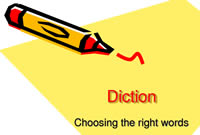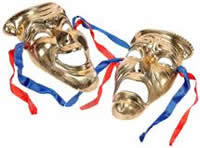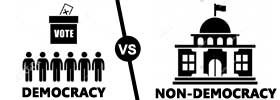Difference Between Diction and Tone
Key Difference: Diction has two different meanings. The first meaning refers to the writer or the speaker's distinctive vocabulary choices and style of expression in a poem or story. The second meaning is the distinctiveness of speech, or the way a person speaks that each word is distinctly clear and understandable. Other than the choice of words a person or character uses, an overall attitude, pitch and volume also gives insight of the literary work or character. Tone shows the attitude of the writer towards the subject and the audience.
Diction and tone are two different literary techniques that the author uses in order to convey the message of the story or to portray the character of the stories. These words are commonly confused due to their similar usage, but they are different from each other.
 Diction has two different meanings. The first meaning refers to the writer or the speaker's distinctive vocabulary choices and style of expression in a poem or story. It is the way the character is written or the way the author is choosing the write the characters. For example, Sherlock Holmes has a distinct way of speaking or saying certain things. It is how he was created as a character. This is the diction of the character. The second meaning is the distinctiveness of speech, or the way a person speaks that each word is distinctly clear and understandable. It also includes the person’s tone and pronunciation.
Diction has two different meanings. The first meaning refers to the writer or the speaker's distinctive vocabulary choices and style of expression in a poem or story. It is the way the character is written or the way the author is choosing the write the characters. For example, Sherlock Holmes has a distinct way of speaking or saying certain things. It is how he was created as a character. This is the diction of the character. The second meaning is the distinctiveness of speech, or the way a person speaks that each word is distinctly clear and understandable. It also includes the person’s tone and pronunciation.
Dictionary.com described ‘diction’ as:
- Style of speaking or writing as dependent upon choice of words: good diction.
- The accent, inflection, intonation, and speech-sound quality manifested by an individual speaker, usually judged in terms of prevailing standards of acceptability.
Example:
Diction formal: I have not seen him.
Diction casual: I haven’t seen him.
Diction analysis of a character or book reveals how the passage establishes tone and characterization. It also includes the style and the choice of words of a character and other factors that establishes the depth of the character. It may also give insight as to how the character or the writer was raised.

Other than the choice of words a person or character uses, an overall attitude, pitch and volume also gives insight of the literary work or character. Tone shows the attitude of the writer towards the subject and the audience. Tone could be formal, informal, intimate, solemn, somber, playful, serious, ironic, guilty, condescending, etc. Each piece of literature has at least one theme and how the theme is approached within the work is known as the tone. Tone is created using diction, syntax, imagery, details and figurative language.
Dictionary.com defines ‘tone’ as:
- Any sound considered with reference to its quality, pitch, strength, source
- Quality or character of sound.
- Vocal sound; the sound made by vibrating muscular bands in the larynx.
- A particular quality, way of sounding, modulation, or intonation of the voice as expressive of some meaning, feeling, spirit, etc.: a tone of command.
- An accent peculiar to a person, people, locality, etc., or a characteristic mode of sounding words in speech.
Example:
- The paper has a very accusatory tone.
- The bird always produces shrill tones in the morning.
- I don’t like that tone, it usually means trouble.
Image Courtesy: docstoccdn.com, beginnings-1750-p5.wikispaces.com









Add new comment